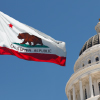Governor Signs Charter Transparency Bill

March 2019
Number 15
Newly elected Governor Gavin Newsom has signed a bill aimed at increasing charter school transparency. Senate Bill (SB) 126 settles, once and for all, the debate over whether charter schools and their governing bodies are subject to California's open meeting, conflicts of interest, and public records laws.
Background
Previous attempts to pass legislation intended to make charter schools subject to California's "sunshine laws" were vetoed by former Governor Jerry Brown. By comparison, SB 126 was fast-tracked through the Legislature at the Governor's urging. The new law comes on the heels of a December 26, 2018 Attorney General opinion which concluded that charters schools were subject to sunshine and conflict of interest laws under the existing statutory scheme. (See 2019 Client News Brief No. 7.) Unlike the statute, the Attorney General opinion was advisory, but not binding.
SB 126
SB 126, which will take effect on January 1, 2020, makes charter schools and entities managing charter schools subject to the Ralph M. Brown Act (Brown Act), the California Public Records Act (Public Records Act), Government Code section 1090 and the Political Reform Act of 1974 (Political Reform Act).
While these laws have never explicitly exempted charter schools, SB 126 specifically provides that charter schools will be held to the same transparency and accountability standards as other public and local agencies, including school districts. In the past, charter authorizers sometimes entered into separate agreements with charter schools mandating compliance with these laws, something that will no longer be necessary once SB 126 takes effect.
Compliance with the Brown Act will impact the practices of many charter schools and the entities managing charter schools. Among other things, the bill requires charter school governing bodies to hold meetings within the physical boundaries of the county where the charter schools are located, or, within the county in which the greatest number of pupils reside if the governing body operates charter schools in multiple counties. SB 126 also requires charter schools to establish two-way teleconference locations at each school site. These provisions may provide more students, parents and community members the opportunity to attend governing board meetings, which has not always been possible when charter schools are managed by entities located outside of counties where their charter schools are located.
SB 126 also requires charter schools and entities managing charter schools to:
Of note, SB 126 does not include any "grandfathering" language that would exempt existing charters from compliance with the new law; thus, all charter schools must be in compliance when the law takes effect on January 1, 2020.
Takeaways
SB 126 provides long awaited guidance clarifying that charter schools are subject to the same transparency laws as other public and local agencies. Authorizing school boards or county boards of education should consider reviewing and amending their policies governing charter schools to ensure the charter schools they authorize and oversee are in compliance when SB 126 takes effect on January 1, 2020. Going forward, charter schools will need to review and revise their policies and, possibly, their petitions to ensure that they are complying with all of the provisions of SB 126.
For additional information regarding SB 126 and its impact on charter schools and school districts, please contact the authors of this Client News Brief or an attorney at one of our eight offices located statewide. You can also visit our website, follow us on Facebook or Twitter or download our Client News Brief App.
Number 15
Newly elected Governor Gavin Newsom has signed a bill aimed at increasing charter school transparency. Senate Bill (SB) 126 settles, once and for all, the debate over whether charter schools and their governing bodies are subject to California's open meeting, conflicts of interest, and public records laws.
Background
Previous attempts to pass legislation intended to make charter schools subject to California's "sunshine laws" were vetoed by former Governor Jerry Brown. By comparison, SB 126 was fast-tracked through the Legislature at the Governor's urging. The new law comes on the heels of a December 26, 2018 Attorney General opinion which concluded that charters schools were subject to sunshine and conflict of interest laws under the existing statutory scheme. (See 2019 Client News Brief No. 7.) Unlike the statute, the Attorney General opinion was advisory, but not binding.
SB 126
SB 126, which will take effect on January 1, 2020, makes charter schools and entities managing charter schools subject to the Ralph M. Brown Act (Brown Act), the California Public Records Act (Public Records Act), Government Code section 1090 and the Political Reform Act of 1974 (Political Reform Act).
While these laws have never explicitly exempted charter schools, SB 126 specifically provides that charter schools will be held to the same transparency and accountability standards as other public and local agencies, including school districts. In the past, charter authorizers sometimes entered into separate agreements with charter schools mandating compliance with these laws, something that will no longer be necessary once SB 126 takes effect.
Compliance with the Brown Act will impact the practices of many charter schools and the entities managing charter schools. Among other things, the bill requires charter school governing bodies to hold meetings within the physical boundaries of the county where the charter schools are located, or, within the county in which the greatest number of pupils reside if the governing body operates charter schools in multiple counties. SB 126 also requires charter schools to establish two-way teleconference locations at each school site. These provisions may provide more students, parents and community members the opportunity to attend governing board meetings, which has not always been possible when charter schools are managed by entities located outside of counties where their charter schools are located.
SB 126 also requires charter schools and entities managing charter schools to:
- Comply with California's Public Records Act, which requires that state and local entities make their records available for public inspection or copying unless exempt from disclosure;
- Adopt a conflict of interest policy as required by the Political Reform Act; and
- Comply with the prohibitions against self-dealing in public contracts as required by Government Code section 1090. SB 126 permits an employee of the charter school to serve on the charter's governing board regardless of the employee's employment status, but the employee must abstain from voting on matters that could affect his or her employment.
Of note, SB 126 does not include any "grandfathering" language that would exempt existing charters from compliance with the new law; thus, all charter schools must be in compliance when the law takes effect on January 1, 2020.
Takeaways
SB 126 provides long awaited guidance clarifying that charter schools are subject to the same transparency laws as other public and local agencies. Authorizing school boards or county boards of education should consider reviewing and amending their policies governing charter schools to ensure the charter schools they authorize and oversee are in compliance when SB 126 takes effect on January 1, 2020. Going forward, charter schools will need to review and revise their policies and, possibly, their petitions to ensure that they are complying with all of the provisions of SB 126.
For additional information regarding SB 126 and its impact on charter schools and school districts, please contact the authors of this Client News Brief or an attorney at one of our eight offices located statewide. You can also visit our website, follow us on Facebook or Twitter or download our Client News Brief App.
Disclaimer: As the information contained herein is necessarily general, its application to a particular set of facts and circumstances may vary. For this reason, this News Brief does not constitute legal advice. We recommend that you consult with your counsel prior to acting on the information contained herein.






